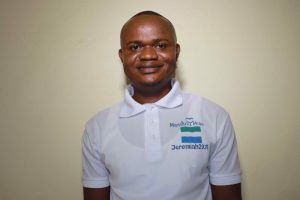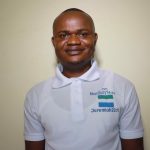When people from the Court Barrie section of Menika visit their well, they often find it dry or broken or both. The population here is booming at 369 people and growing every day, which has increased the demand on the well. The well's frequent outages spurred community members to dig another well near the ocean, but this source is rudimentary at best, and can only be reached by climbing a steep, slippery hill.
Because water is scarce, quarrels often break out among those waiting to fetch water. People see each other differently when they are desperately in need of water; they are always in a rush to be the first. The fighting got so bad that the community council has started fining those who don't wait their turn or instigate conflict at the well.
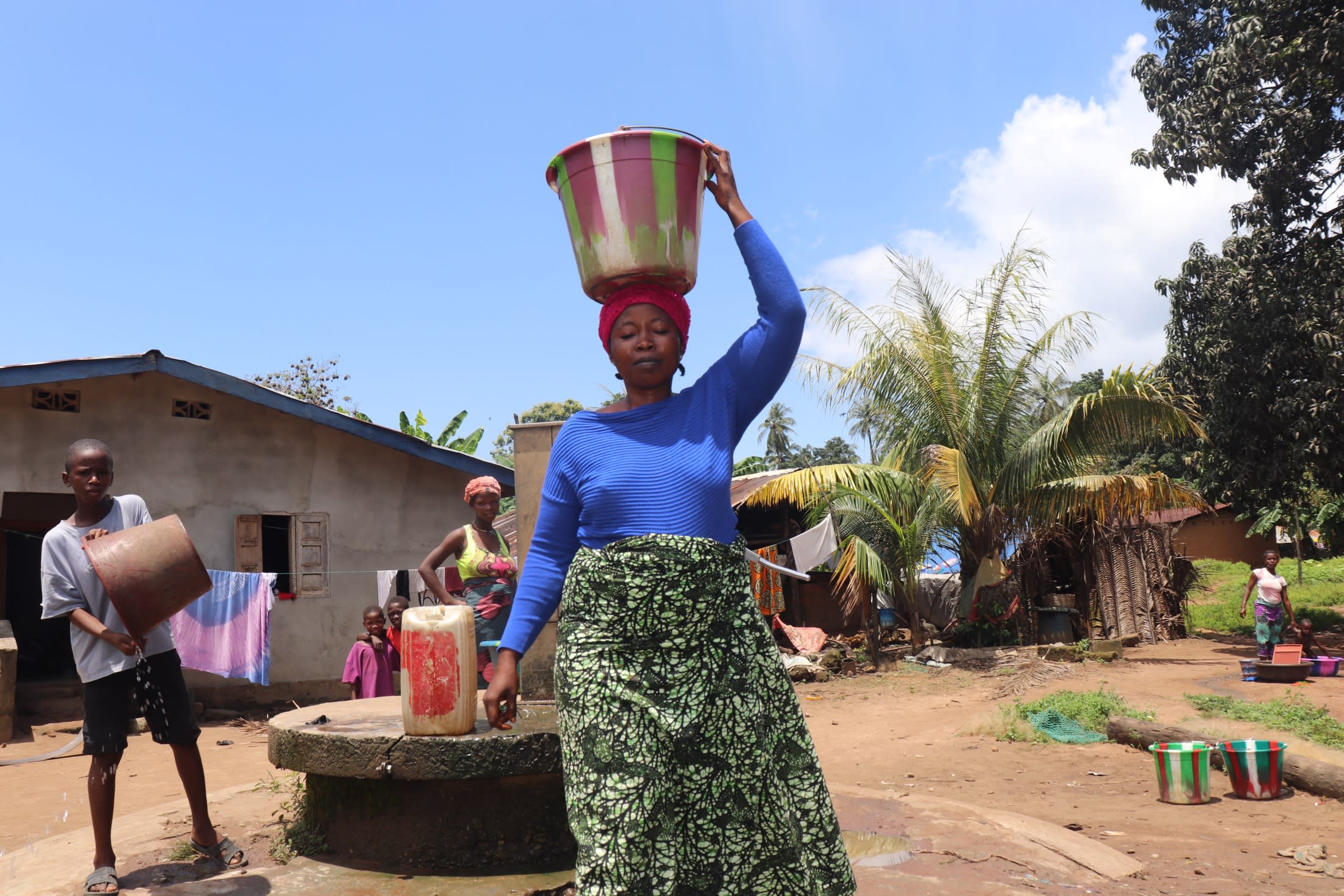
"It is very difficult to access water to do household activities and to drink," said Salaimatu Bull, a 25-year-old fish trader (in the above photo). "In the [dry season], it becomes harder for me to fetch just a single bucket of water for my family."
Aminata, a 17-year-old student (in the photo below), explained the situation that resulted in her being fined. "Sometimes, it is hard to fetch water at the main well because of overcrowding. I had quarrels with people who wanted to bully me and fetch water even when I was the first to fetch water at that time. I was accused of provoking my elders and the matter was taken to the local chiefs. They levied charges on me. My father paid and wanted to stop financing my education."
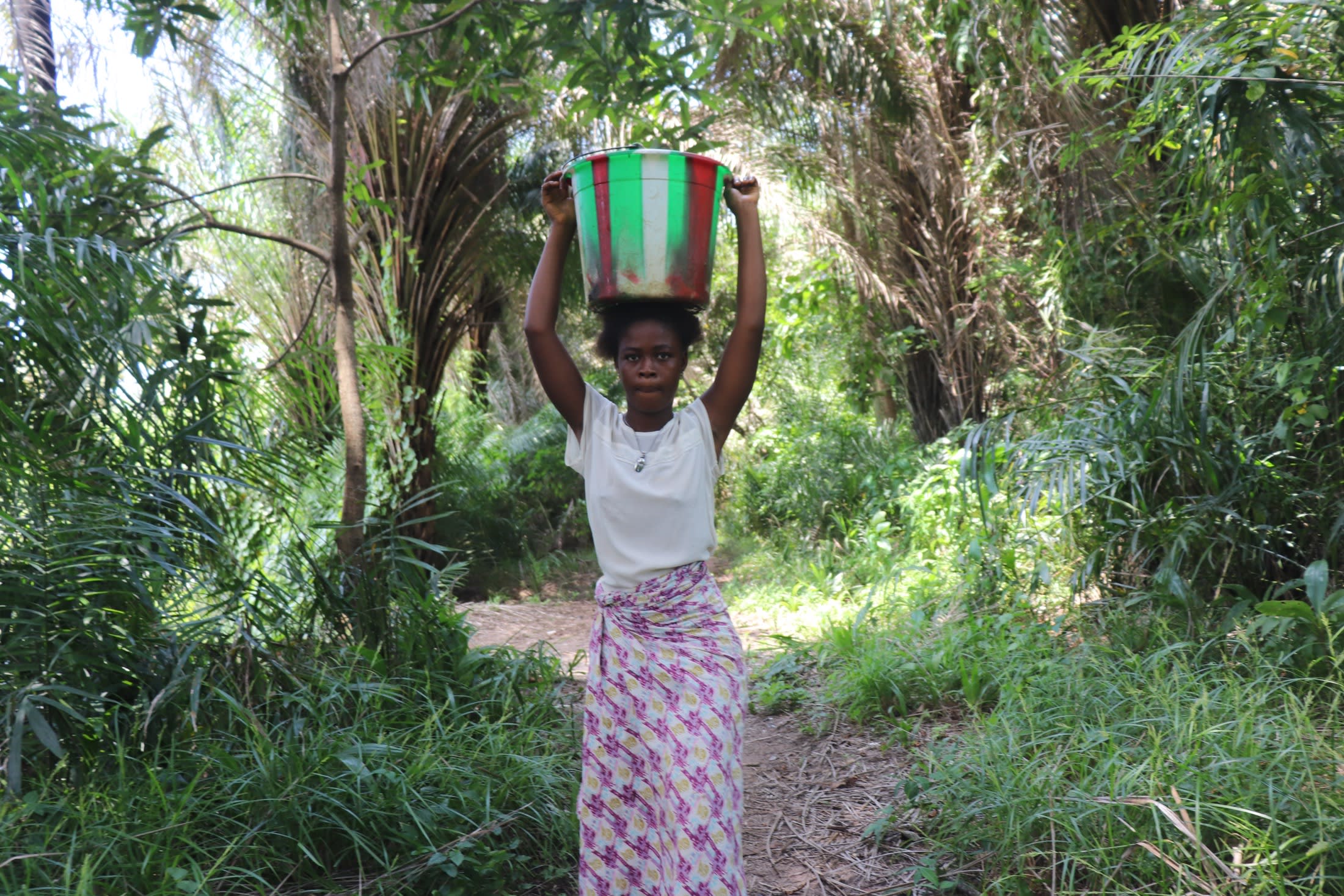
The alternative water source in the swamp shown below provides plenty of salty, muddy water. The villagers who get water here must first strain, filter, and boil the water before using it, which takes time.
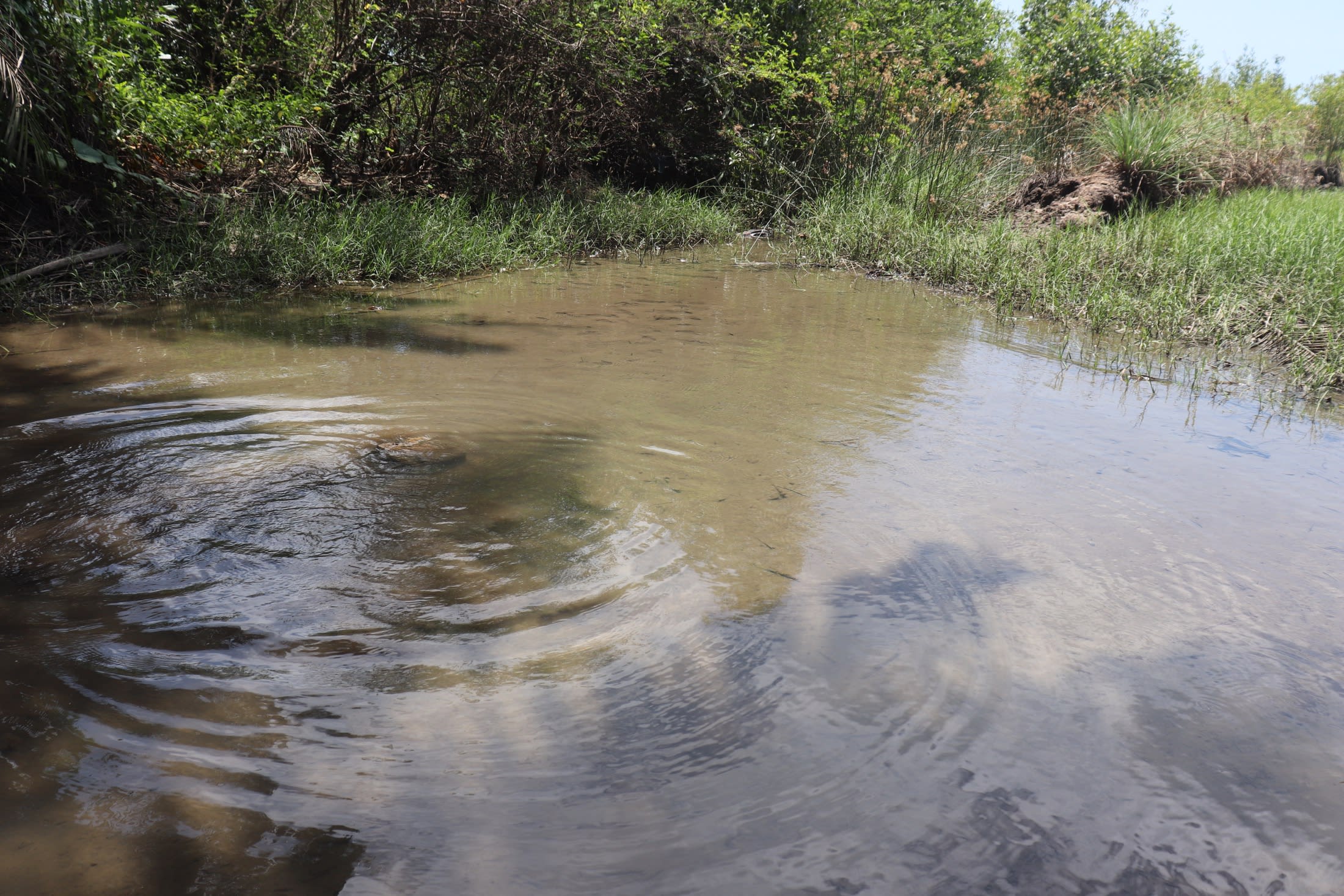
"If I was not fortunate to fetch water from the main source, the only choice would be the swamp well, which is always open to everyone in the community, but very hard to reach because of the distance and the hill," Salaimatu continued. "The water is not good for drinking, but it is difficult to prevent my kids from drinking it because they cannot bear it when they are thirsty for water. The only thing I could do was to filter, boil, and allow it to cool before everyone would have access to drink it."
Because water is so difficult to get in Menika, many people delay doing chores and work duties that require water.
"I also take clothes to the swamp well to launder and bring them back," Salaimatu explained. "It is very difficult to carry them and climb the hill to the house, therefore I usually do not launder clothes regularly."
"[The] water shortage is not good, and I hope this community will get another source where we can get enough water at any time," Aminata concluded.
Here’s what we’re going to do about it:
Well Rehabilitation
The well marked for this overhaul is dry for a few months every year and needs major work to supply adequate, clean water to the community year round. The pump will be removed, and a hand auger will be lowered inside and powered by a drill team. This hand auger will allow the team to drill several meters deeper to hit a sufficient water column that will ensure the well supplies water throughout all seasons.
As the team drills, casing will be installed, transforming the bottom of this hand-dug well into a borehole. PVC piping will connect this lower system directly to the pump, a construction that we know will also improve the quality of water.
Once this plan is implemented, everyone within the community will have access to safe drinking water in both quality and quantity, even through the dry months.
Hygiene and Sanitation Training
There will be hygiene and sanitation training sessions offered for three days in a row.
After our visit, the hygiene and sanitation trainer decided it would be best to teach community members how to build a tippy tap (a hand-washing station built with a jerrycan, string, and sticks). They will use these tippy taps for handwashing demonstrations, and will also teach about other tools like dish racks and the importance of properly penning in animals.
These trainings will also strengthen the water user committee that manages and maintains this well. They enforce proper behavior and report to us whenever they need our help solving a serious problem, like a pump breakdown.

 Borehole Well and Hand Pump
Borehole Well and Hand Pump









